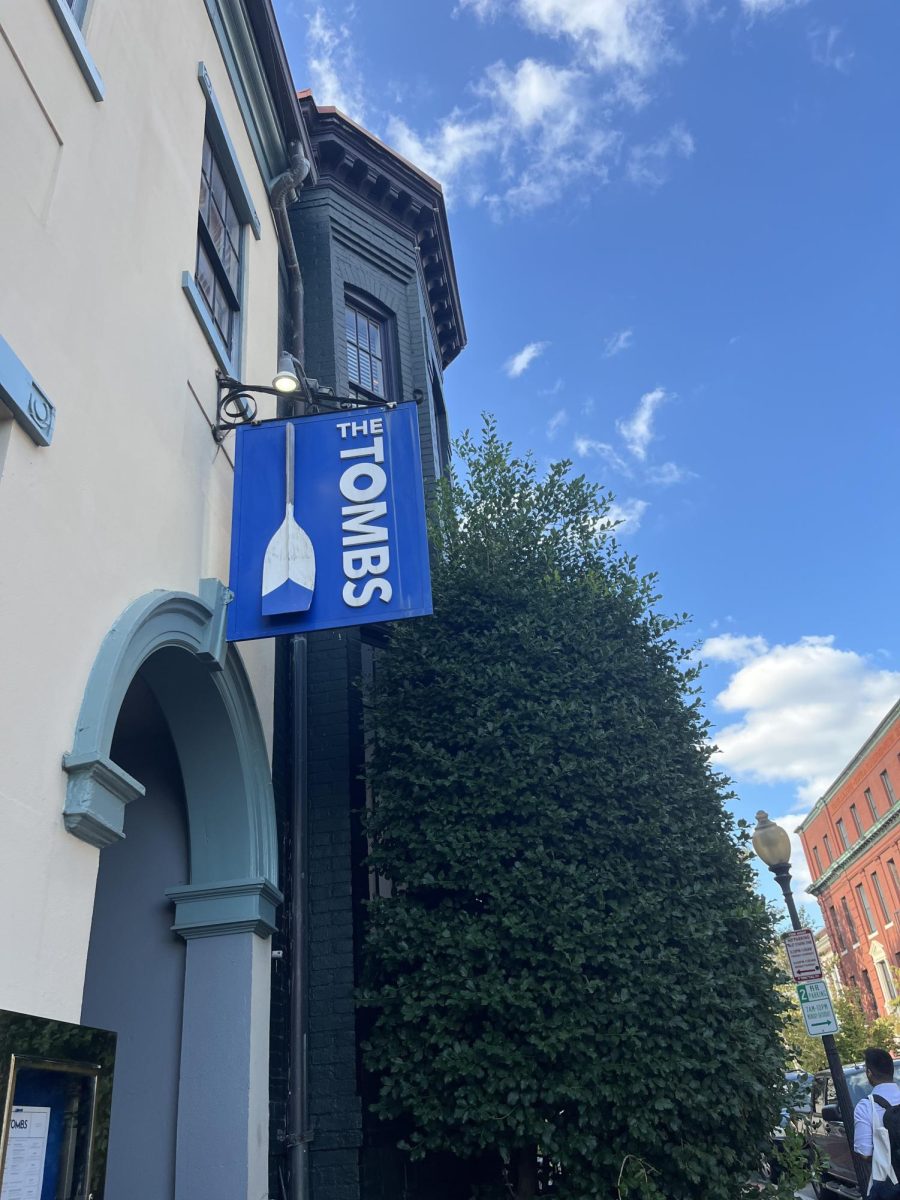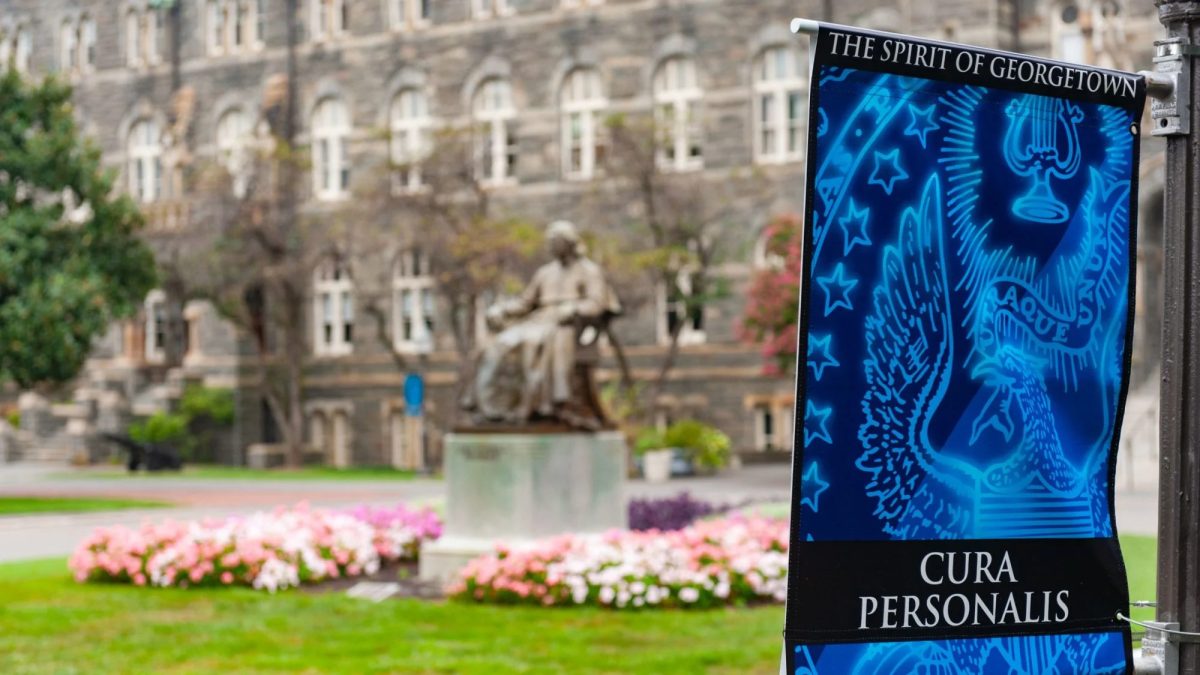The Georgetown University Student Association (GUSA) Senate passed 14 bills, including resolutions to endorse a student-led protest regarding federal changes in education, reform transportation services and eliminate some student fees, at a March 23 meeting.
In a 13-2 vote with five senators abstaining, the Senate passed a bill endorsing the GUSA external affairs team to organize a city-wide protest in response to the Trump administration’s policy changes and federal actions targeting higher education. The Trump administration withdrew $400 million in federal funding from Columbia University over alleged antisemitic activity on campus March 7, threatened the Georgetown University Law Center (GULC) over its alleged diversity, equity and inclusion (DEI) curricula, prompted universities to remove DEI language from their websites and detained two non-citizens in the United States legally, including a Georgetown researcher, from college campuses on account of their pro-Palestinian political speech.
President Ethan Henshaw (CAS ’26) said GUSA should endorse a student protest, the first time the organization would take such an action, in light of federal actions against higher education that he said are unprecedented.
“There’s never been a time when the president has said you can’t hire this professor, you can’t engage this policy, you can’t have a secondary teaching at your school, you can’t have this class at your school anymore, you can’t have this student organization,” Henshaw said at the meeting.

“We want these institutions to be in the hands of our university administrators so that we can deal with the process ourselves,” he added.
Some senators questioned whether it was GUSA’s role to endorse student protest, or whether a protest would incite the administration’s withdrawal of federal funds from the university.
In a prepared statement, senator John DiPierri (SFS ’25), who was absent from the meeting, said the bill would alienate students who agree with the federal government’s actions.
“GUSA should not be taking strong positions on issues of national politics and national political controversy, especially considering the fact that this is not an issue that unanimously unites the student body of this campus,” DiPierri wrote in the statement, which was read aloud at the meeting.
Senator Tyler Chase (SFS ’28) said the bill, which makes a general statement requesting the university’s independence from federal actions, positions the university against the federal government.
“I just struggle with the idea that the student association is publishing something that supports the university going against the federal government,” Chase said at the meeting.
Vice President Darius Wagner (CAS ’27) said GUSA has a responsibility to take a public stance in support of student protest because federal actions are directly affecting the student body.
“They’re directly targeting everything that makes us Hoyas, from our professors’ ability to exercise their academic freedom, our students’ ability to hold their cultural spaces,” Wagner said at the meeting.
According to Henshaw, a Department of Education Office of Civil Rights Dear Colleague letter sent Feb. 14, which directs educational institutions receiving federal funding to discontinue race-based programs and initiatives, may threaten the university’s research funding due to the existence of affinity spaces on campus like La Casa Latina, the Black House and the Asian-Pacific Hub for Organizing, Unity, Solidarity, and Empowerment (HOUSE).
The Senate passed four bills relating to transportation services, including a bill urging the university to create an express Georgetown University Transportation Shuttles (GUTS) bus route to the Capitol Campus. Other bills encouraged the university to establish a GUTS bus route to Union Station before and after academic breaks, to extend the additional hours that have been in place for the GUTS bus Capitol Campus route in March and to lobby the D.C. City Council for inclusion of Georgetown in the metrorail system.
Senator Evan Cornell (CAS ’27), who introduced the Metro stop bill, said its goal is to help provide Metro access to the Georgetown community as soon as possible.
“Georgetown will be in the Metro system at some point,” Cornell said at the meeting. “This bill just calls all the universities to help aid that process and get it here soon.”
The senate passed bills to reduce various student fees on campus, including asking the university to reinstate complimentary refrigerators for first year students, implement and improve the existing free printing policy and prevent student organizations from paying fees to the Healey Family Student Center for event space.
Other bills the senate passed call on the university to revive the LGBTQ+ Living Learning Community, create transparency with GUSA on broken kitchen equipment in dining halls, open and refurbish new prayer and meditation rooms, support hall councils and lower mandatory negotiation costs for student groups renting audiovisual equipment.
The senate also passed a bill calling for a ban on faculty use of AI for creating or grading assignments.
Senator Saahil Rao (SFS ’27) said he introduced the faculty AI bill after hearing allegations that a professor used an AI tool to grade a student’s paper, despite students being banned from using AI to complete their work.
“If we’re not allowed to use AI to do our work, teachers shouldn’t either, considering the absurd amount that tuition is at this school,” Rao said at the meeting.
In addition to passing legislation, the Senate appointed Crystal Liao (CAS ’26) to fill the vacant Class of 2026 seat left open by Henshaw’s confirmation as GUSA president. The senate announced that Senator Dylan Davis (CAS ’26) resigned from GUSA on March 20 without further explanation, leaving a separate seat open.



















